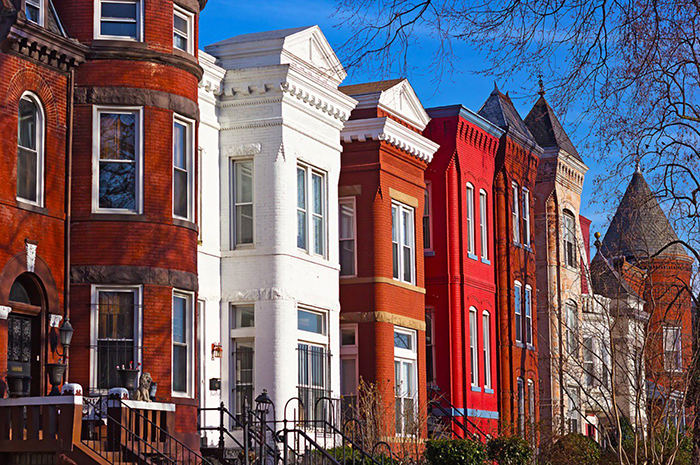Buying a home in a competitive market can sound intimidating, especially if you’re new to this. Even though the Minnesota housing market is gaining serious momentum, it doesn’t necessarily mean you’ll be spending months looking for a house. In the following, we’ll show what buyers are doing to make an offer on a house stand out, and when to know if that’s the right move.
Read: Want to buy a house? Get your financial house in order
Things to do before you start house hunting
Before you make an offer on a house, and before you start looking, here are a few things you’ll want to get done.
Look early, look often
Before you buy, get familiar with the local market. Visit open houses and pore over online listings. Knowing what the local market has in your price range helps you know your must-have features and deal-breakers. Perhaps a backyard deck is essential, or your family needs a minimum of two baths.
Read: Your guide to home construction loans: What to know and how it works
Get pre-qualified
It almost goes without saying, but having a pre-qualification from a lender before you make that first offer is essential. There are two main reasons to do this.
You can make an offer knowing exactly how much house you qualify for — with no unpleasant surprises.
It will make you a more attractive buyer because pre-qualification can speed up the lending process, and the seller’s ability to close.
Choose a local lender
Make your first stop a community-based lender, like Minnwest Bank. We have plenty of resources to share with first-time homeowners to help you reach your goals. Of course, we’ll provide you with tools and guidance so you can feel confident your mortgage fits your family’s budget. Unlike online mortgage lenders, our mortgage lenders live and work right in the community. Whether you’re a newcomer, a lifer or something in between, our insights and expertise in the local market can help you get into the house of your dreams!
Check out: Rural development loans for Minnesotans: Your questions answered
Consult with a real estate professional
A seasoned Realtor in your community will have a finger on the pulse of the local market. When you discuss offer strategies, their perspective and experience will play a big part in how to create a winning offer.
- They know the market. A seller’s market doesn’t always mean every single property is inundated with cash-only, $100,000-above-listing offers. Their expertise can guide what you bring to the table, whether you should move in with your highest and best offer or whether you have space to consider and negotiate.
- They may have creative solutions. If you don’t have the budget (or time) to participate in the frenzy, ask if they know of great properties that fall outside the “hot zone.” A different neighborhood or even a nearby community can open new doors.
- They can help you negotiate. They’ll gauge whether your offer makes sense for the situation. Later, when sellers come back with a counteroffer, your agent can help you understand what they’re asking for, and provide guidance for your next steps.
Making an offer on your first house: What you need to know
Not sure if you should start with above-listing, at-listing or below? Here are some factors to consider.
Length of time home has been on the market
Homes that have lingered on the market present a golden opportunity to negotiate and get a great buy. Just be sure you and your Realtor dig in and identify all possible barriers to a faster sale, and know whether you can live with these. Is its location next to the highway? Is the issue cosmetic? Are there structural flaws?
The condition of the property
Again, do your best to evaluate the condition of the home. Would it require extensive remodeling and updates? Do you see cracks in the foundation? That’s where you’ll want to negotiate for a lower price.
Read: Intro to HELOC loans: Your pressing questions answered
Leave breathing room in your offer
Let’s say you’re pre-qualified for $300,000. Whatever you do, never max out your limit, even if that would give you a competitive lead at the offer table. Sure, you may win. But the seller (and their Realtor) will know you’re at your limit and that can backfire on you.
- They’ll return with a counteroffer that’s hard to live with, such as saying no to making a needed repair.
- They’ll reject the offer because it can be a red flag for a possible last-minute back-out.
- For example: Interest rates change all the time. Unless you’re locked in, an upward shift could mean you no longer qualify for $300,000, forcing you to turn down the deal. (That also means you’d end up leaving much-needed earnest money on the table.)
Contingencies: Are they still relevant in a seller's market?
Short answer is yes. When crafting your offer, one thing to consider is contingencies. A contingency is a clause in the home purchase offer that lets you back out of the sale (but keep in mind you’d forfeit your earnest money). Here are a couple of common contingencies and how they might apply to you.
Selling current property
Here first-time buyers have an opportunity to stand out in the pile of offers. The seller will recognize they don’t have to wait for you to sell your property by a certain date to go through with the sale.
Home inspections
Some buyers in competitive markets opt out of the home inspection and appraisal to make their offer stand out to the seller. If they don’t have the bother of having to fix a problem or lose the sale, that’s icing on the cake! If you’re tempted to go this route, consider the worst-case scenario and whether you could live with these results. Also, it can help to know that many lenders will not approve mortgages without an appraisal. In the end, this may not be a can of worms worth opening.
Earnest money: Should you go big to go home?
Earnest money is a deposit that shows the seller your offer is serious. This is important because once the seller accepts the offer, they’re agreeing to take the home off the market until closing. If you back out, that delays their ability to sell and move.
- Once both seller and buyer align, the earnest money goes into an escrow.
- After closing, the earnest money gets applied to the down payment.
- If the buyer backs out for reasons not covered by the contingency, the earnest money goes to the seller, so they’re reimbursed for their trouble.
Some buyers kick in earnest money that’s well above the usual 1-2% of the property. If you’re considering doing the same, make sure you don’t offer more than you can afford to lose. If saying goodbye to $5,000 would put you in a jam, that’s when you would want to pass.
Make Minnwest Bank your mortgage lender of choice
Minnwest Bank is there to help you achieve your dreams. Our community banking approach is designed to make mortgage loans more streamlined for borrowers like you.
- Our helpful bankers take time to educate you and answer all your questions, so you can feel confident in the process.
- You'll always work with the same lender from start to finish. All servicing and processing stay in the same location.
- As a community bank, we offer flexible terms and customized loan packages at highly competitive rates. With our level of service, you get tremendous value.
Learn more about our mortgage program and reach out to a mortgage banker in your community today. All applications are subject to credit approval.


